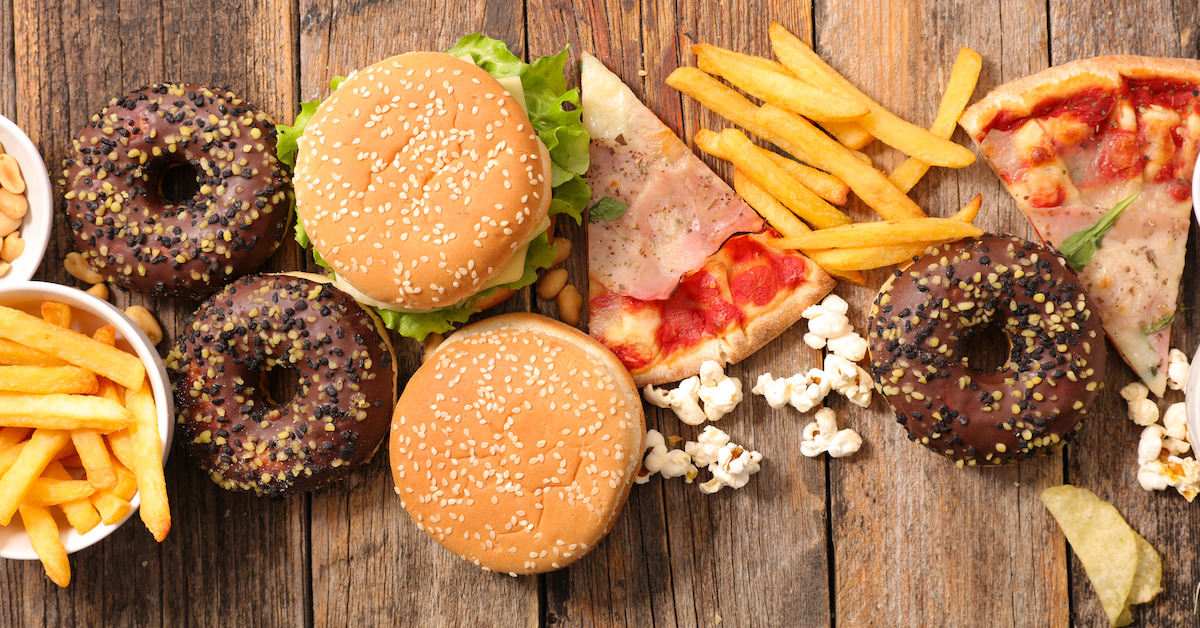As one of our frequent readers you’re no stranger to the link between processed foods and poor cognitive function. But now, new research offers undeniable evidence that regular consumption of ultra-processed foods puts you at a higher risk for cognitive decline and memory loss.
Equally concerning, even a modest amount of these tempting foods may be too much for your memory…
The newest study, published recently in the journal JAMA Neurology, followed more than 10,000 men and women for a decade.1 Of those, 50 percent were female, white and college educated. The average age at the onset of the study was 51 years old. At the conclusion of the study, researchers evaluated participants for changes in cognitive performance.
What did the team discover?
Ultra-Processed Food Speeds Cognitive Decline
They concluded that people whose daily caloric intake includes at least 20 percent of calories from ultra-processed foods had a 25 percent speedier decline in executive functions and a 28 percent faster rate of overall cognitive impairment.
However, the researchers did note that if a person’s overall diet is healthy and balanced, the effect of an occasional ultra-processed item is less of a concern.
Dr. Natalia Gomes Goncalves, lead author of the study, says the team can’t say if the consumption of ultra-processed foods is associated with accelerated decline in folks who already have cognitive decline. Still, these findings do support the role of healthy dietary choices in delaying decline in cognitively healthy people.
Dr. Goncalves says dietary choices are a powerful way to help maintain a healthy brain function.
“It is possible to make healthier food choices within our means in order to maintain overall health as we age,” she explains.
“In addition, middle age is an important period of life to adopt preventive measures through lifestyle changes since the choices we make at this age will influence our older years.”
As noted earlier, the new findings align with previous research, including a cross-sectional study in Australia that suggests ultra-processed foods are damaging to brain function.2
What Are Ultra-Processed Foods?
The scientists define ultra-processed foods as “industrial formulations of food substances (oils, fats, sugars, starch, and protein isolates) that contain little or no whole foods and typically include flavorings, coloring, emulsifiers, and other cosmetic additives.” They include most pre-packaged snack foods, sugar-sweetened beverages, frozen meals, processed red meat, potato chips, and frozen French fries, even many seemingly healthy frozen foods.
Sadly, these same foods are cheap, quick to prepare, and boast a long shelf life. It’s a good idea to avoid them entirely if you can. Next, limit store-bought cookies and pastries, sweetened breakfast cereals, and refined salty snacks of all ilk.
Why are they so bad for your brain? Let us count the ways, starting with how these highly addictive foods deliver plenty of calories, fat, sugar, and sodium with little to no nutrition.
These Foods Trigger Inflammation
In the newest study, researchers discovered that ultra-processed foods negatively impact the areas of the brain related to cognitive function. What’s more, these foods are known to increase inflammation in the brain, which is another factor leading to cognitive decline. Inflammation can affect neurotransmitters in the brain.
What can you do about it? Focus on eating a healthy a diet. For example:
- Eat the rainbow. You’ve likely heard this phrase, but it’s for a good reason. Ditch the bland-colored foods and load up on the brightly colored fruits and vegetables. I always follow the advice to eat them in as close to their natural state as possible.
- Load up on fiber. Ultra-processed foods typically offer little fiber. A recent study found that low-fiber diets are associated with a greater risk of dementia.3
- Pass on processed protein. Consider adding wild, fatty fish, such as salmon, and lean poultry, and cutting down your consumption of bacon, sausage and deli meats.
- Avoid processed snack foods. These include pastries, chips, crackers, and other foods. If you feel like snacking grab some fruit or nuts.
My Takeaway
It’s never too late to make healthy lifestyle changes. We can add this research to the wealth of already existing studies that show changes in diet, at whatever age, can go a long way in supporting a healthy brain and body.
- https://jamanetwork.com/journals/jamaneurology/fullarticle/2799140?guestAccessKey=6596a781-a55c-45ad-bf45-d78a9cfe312f&utm_source=For_The_Media&utm_medium=referral&utm_campaign=
ftm_links&utm_content=tfl&utm_term=120522 - https://link.springer.com/article/10.1007/s00394-022-02911-1
- https://www.sciencedaily.com/releases/2022/02/220222135319.htm







